Quick Bhutanese translations: Chhu = river, La = pass, Dzong = monastery/fortress, and Stupa/Chorten = shrine
I’m heading home after another memorable Rafting & Cultural Tour of Bhutan. Fifteen of us travelled across Western Bhutan visiting Buddhist monasteries and rafting many of it’s beautiful rivers.
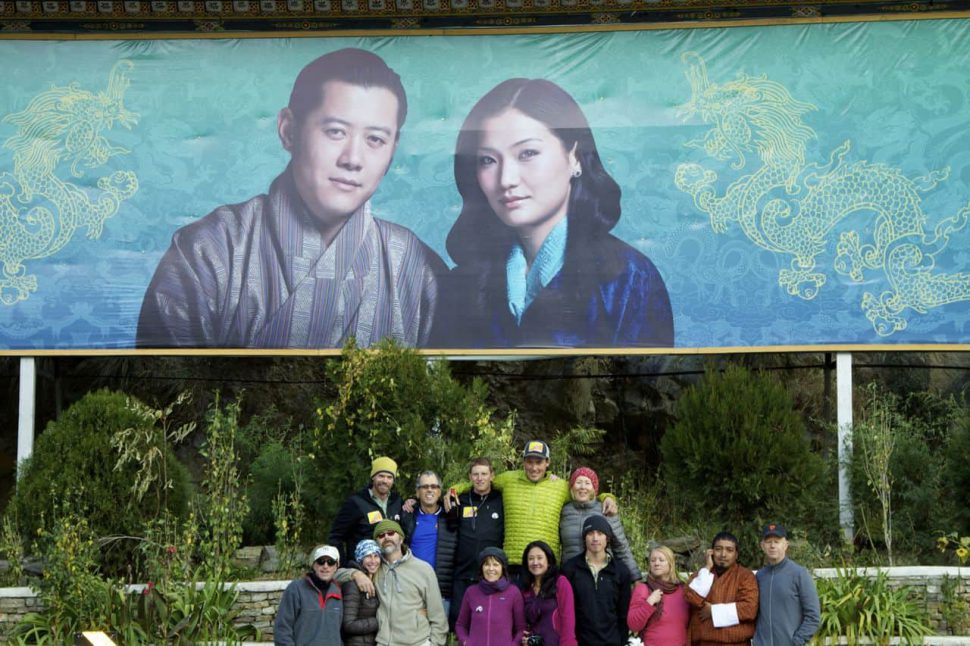
Paro and Thimphu
Our first day was one of many special days of the trip. After arriving in Paro, we drove to the Paro Dzong for a tour. As luck would have it, the brand new 100-foot tall thangka (a type of Bhutanese scroll painting) was being unfurled for the first time and a celebration was underway. This particular thangka took 3 years to make. Many Bhutanese citizens were there to see it and many monks were there to bless it. Later that day, we headed to a monastery in Paro where the Je Khempo (the religious leader of Bhutan) was also visiting.
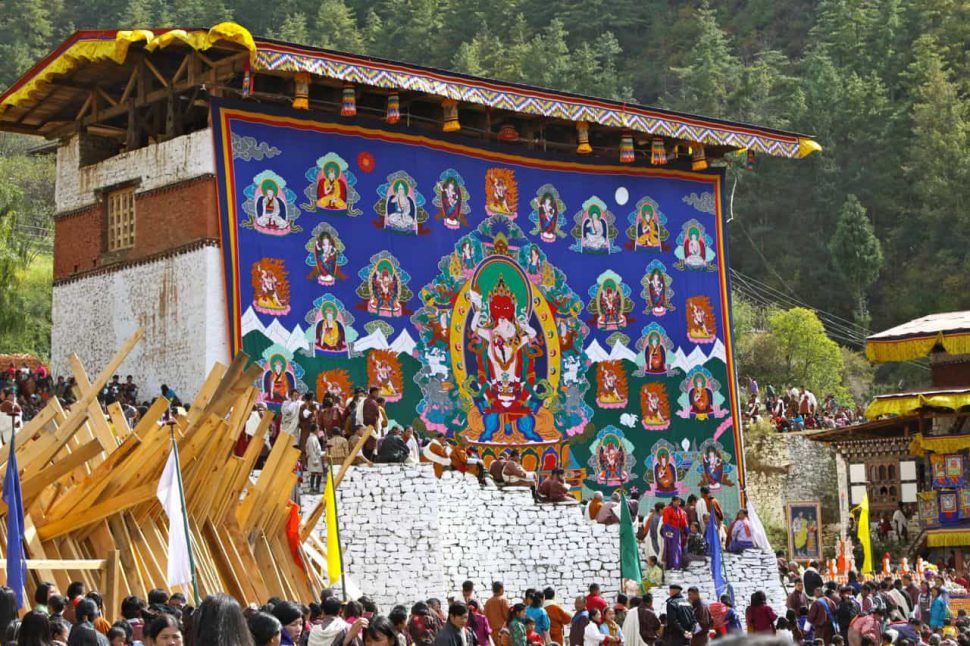
We woke up the following morning to beautiful weather and were excited to get out and enjoy it on the Paro Chuu. We stopped along the river to visit a bridge built in the 14th century by the “iron bridge builder“. That afternoon we headed to the capital city of Thimphu and visited the weekend vegetable market.
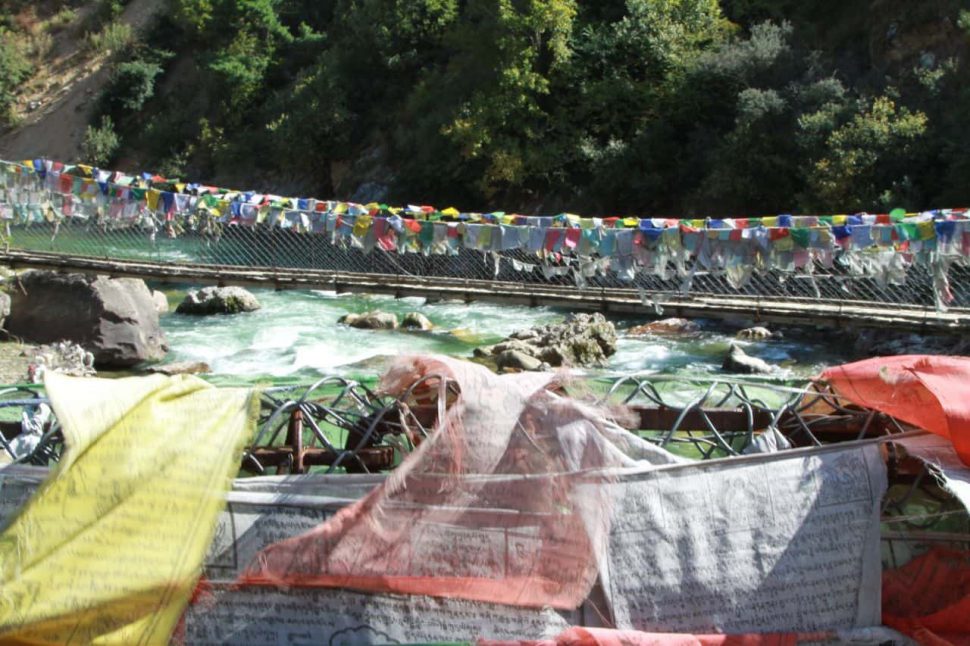
The Punakha Valley
On day 3, we drove over the 10,000 foot Dochu La pass where a new monastery and 108 stupas were built to celebrate a military victory over rebels in 2004. In the Buddhist culture 108 is an auspicious number so a few of us did 108 burpees on the pass surrounded by 108 stupas.
From the pass, we descended to the beautiful Punakha Valley and made an afternoon stop at the Temple of the Divine Madman. The Divine Madman is an important religious figure in Bhutan and the most important Buddhist figure who was born in Bhutan (many of the important Buddhist figures were born in Tibet and came to Bhutan to meditate and spread their teachings).
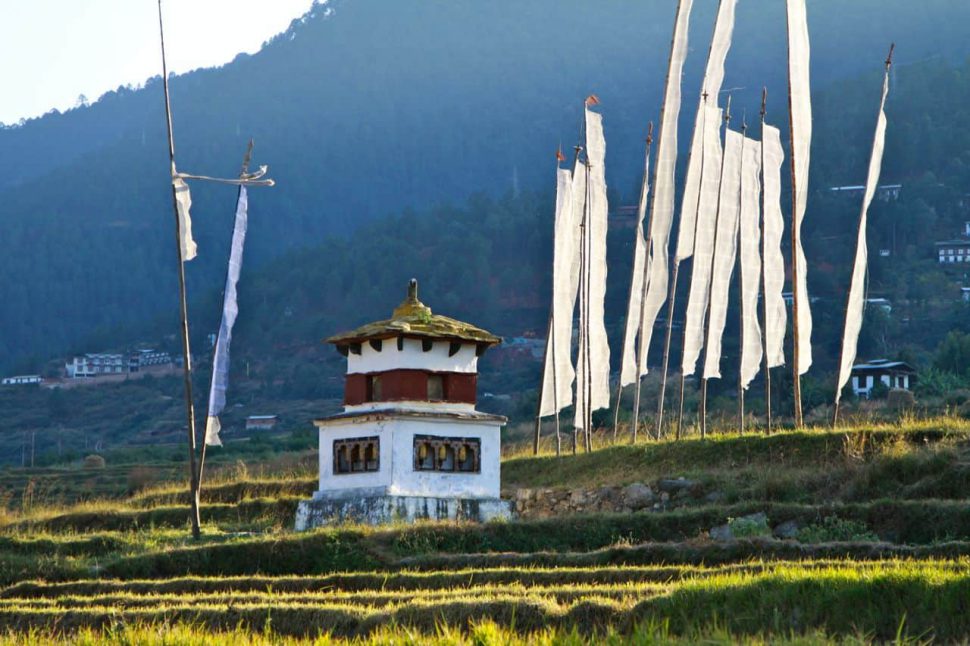
We spent the next few days exploring the Punakha Valley. We paddled the Mo Chuu and Pho Chhu, visited the historic Punaka Dzong, did some mountain biking, and visited a scenic chorten built high above the Mo Chhu. There is much to see and do around the Punakha Valley, and we did our best to take it all in.
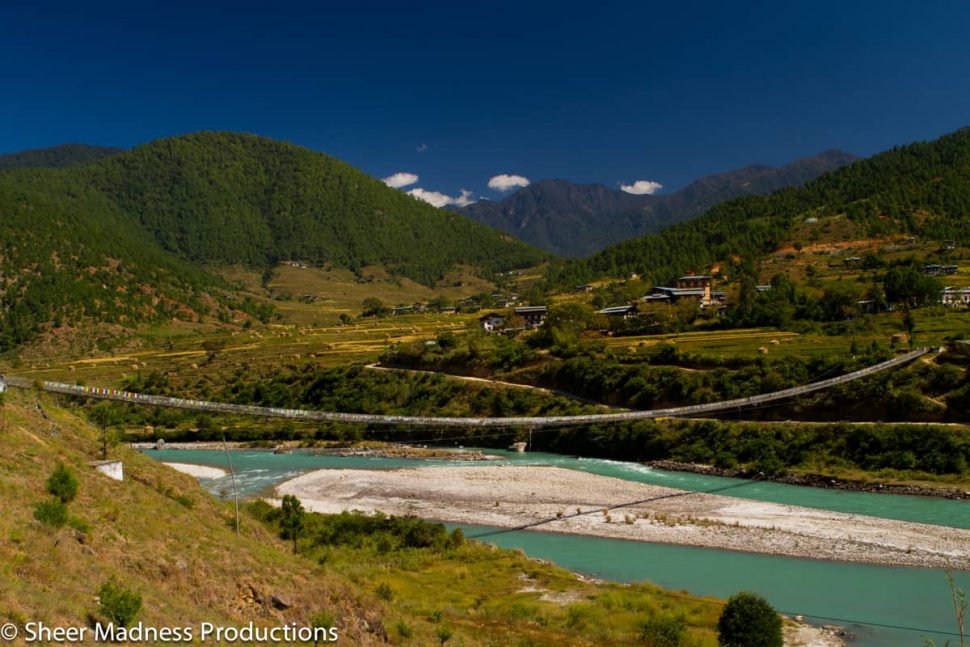
A highlight of the trip happened along the Pho Chhu. We were walking toward the put-in and stopped to listen to some monks chanting inside one of the villagers’ houses. Every year, monks visit each household to perform rituals. During this several-day event, each household also invites the local community to join in the celebration. The woman of the house saw us outside and immediately came out to say hello and bring us some homemade rice wine. We all tried some and it was actually quite good!
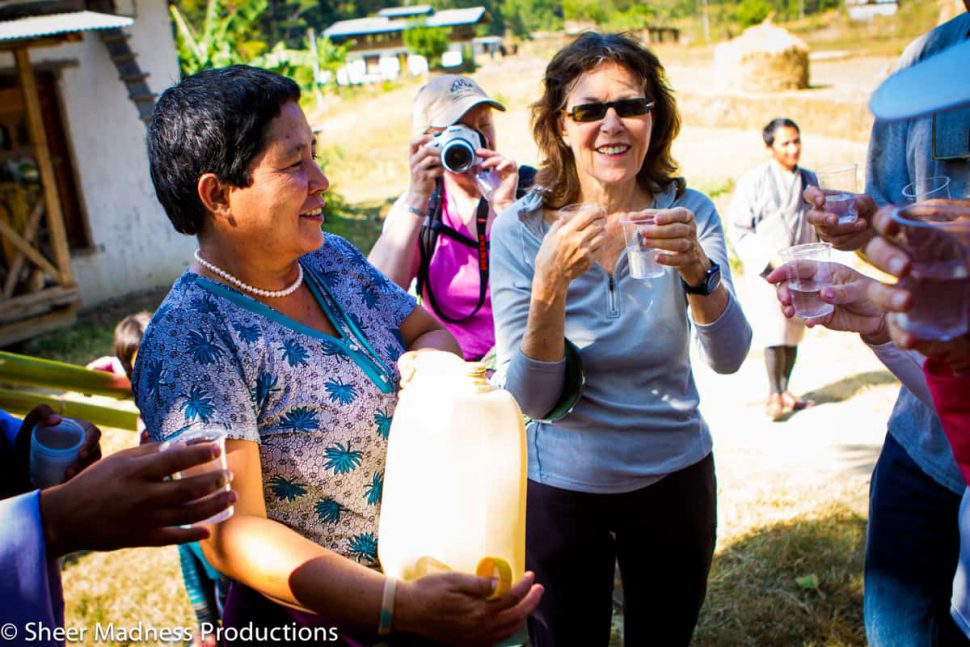
Experiencing the locals’ warmth and hospitality fills my heart, and I’m grateful that our rafting trips take us off the beaten path in Bhutan and allow us to have special experiences like this one.
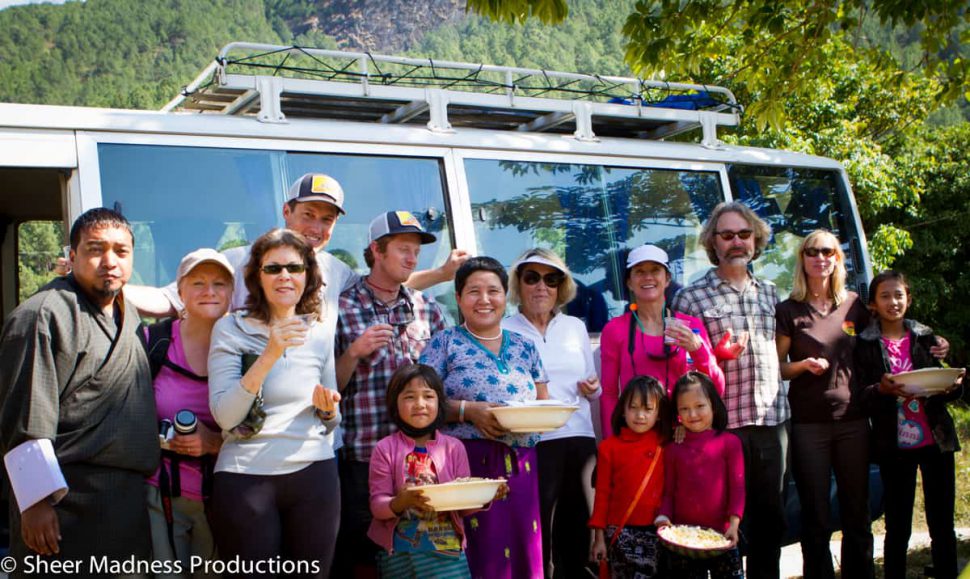
We paddled down the Po Chhu’s glacial blue water and enjoyed a beautiful day on the river. When passed the same house later that day after our run, and there were some monks playing a game in her yard. We stopped to say hello and join in their game. After a few minutes, more monks came down and we shared a game of throwing small rocks at big rocks (one of my favorite games!).
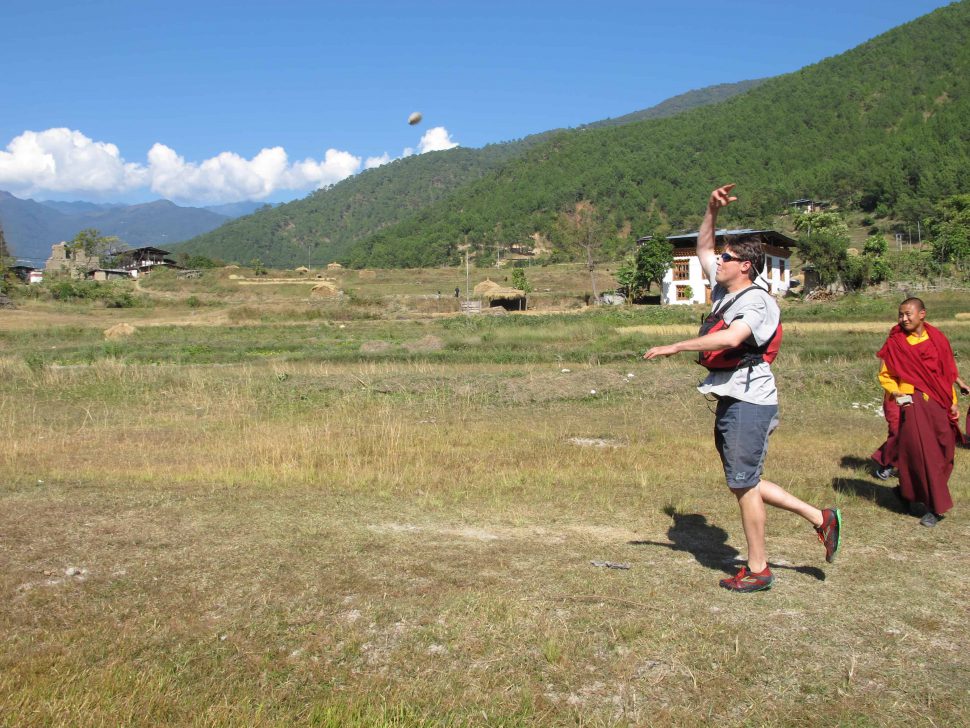
As we prepared to leave, we gestured towards the rafts hoping to get a photo of the monks with our boats in the background, to which they happily obliged us. After a few photos, we asked them if they wanted to paddle. They enthusiastically grabbed paddles and jumped in the boat. Without being able to communicate verbally with them, Dan was able to guide them down a short stretch of the river. It was a truly unique and amazing experience!
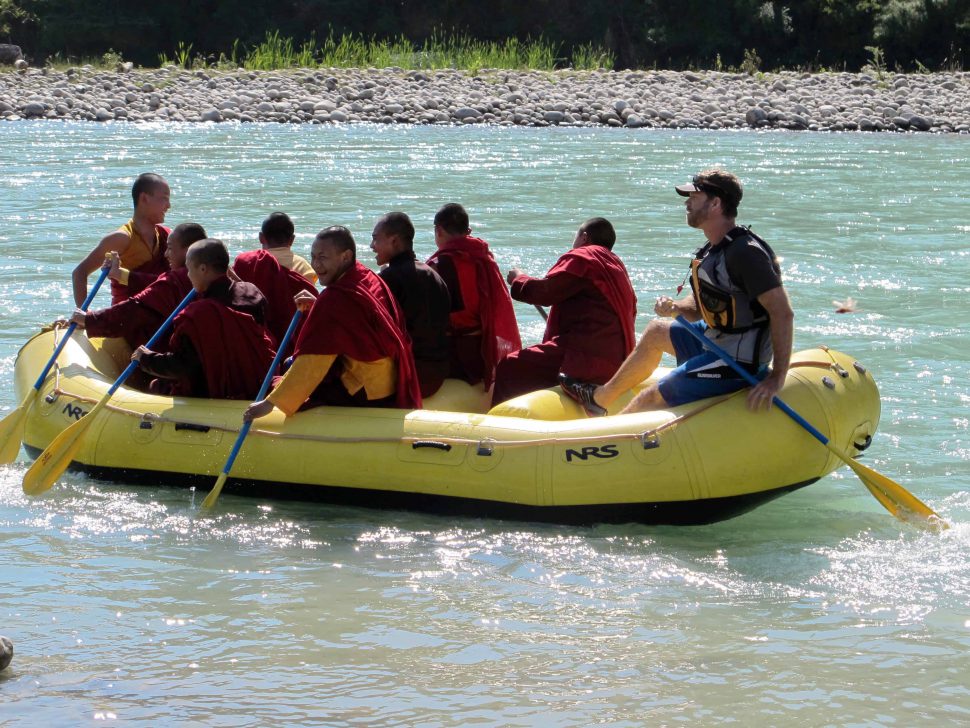
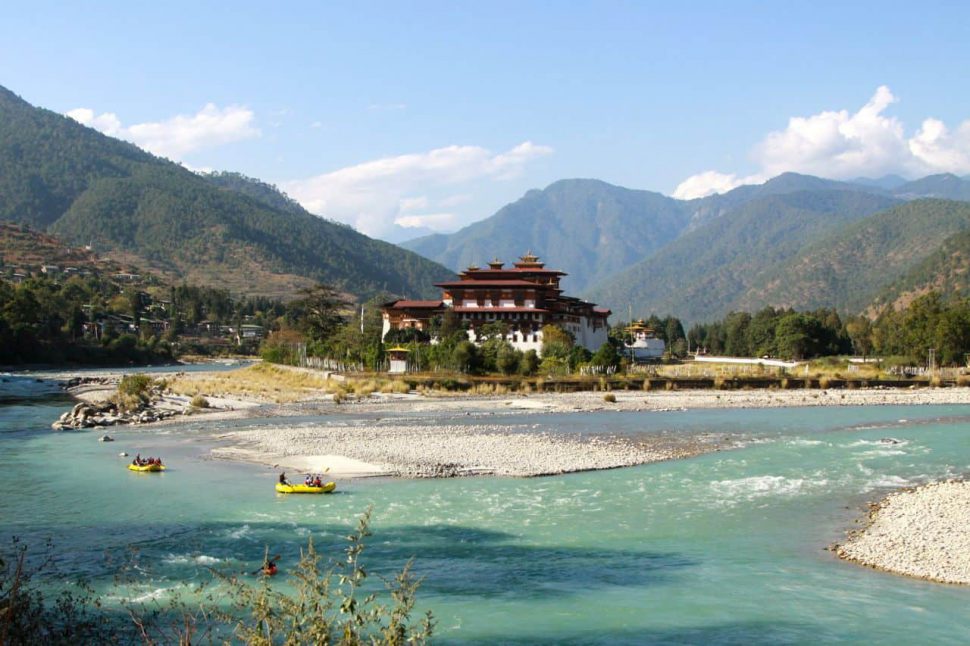
Back to Thimphu
After rafting the Po Chhu we toured the Punakha Dzong and the next morning drove back over Dochu La to Thimphu. Here we did some shopping and visited the handicraft school.
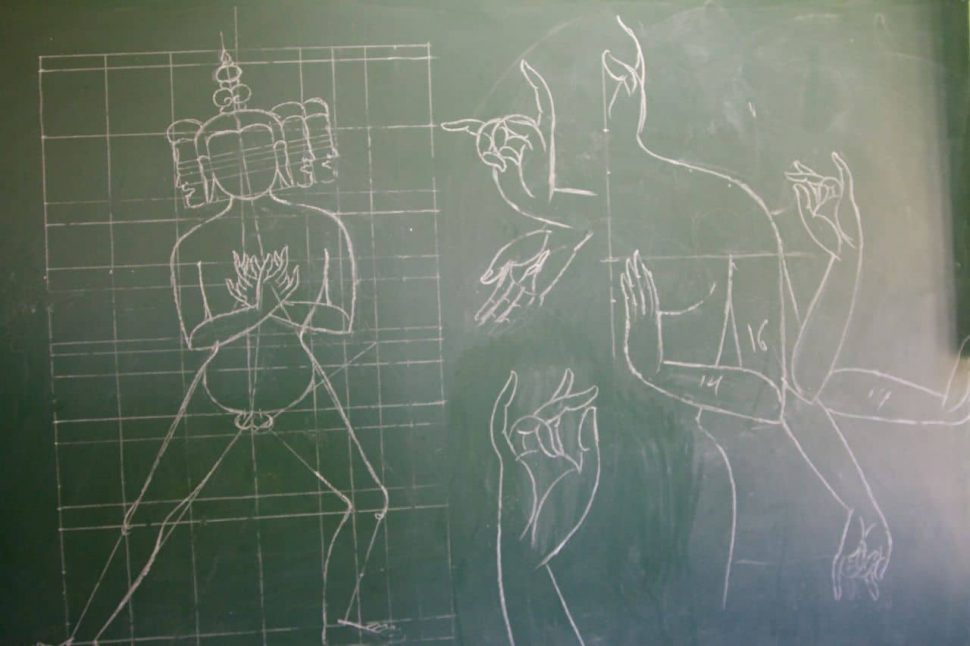
We then rafted the challenging Thimphu Chhu on our way back to Paro. We ended at Chuzom and the confluence with the Paro Chhu where Tibetan, Nepali, and Bhutanese Stupas have been built.
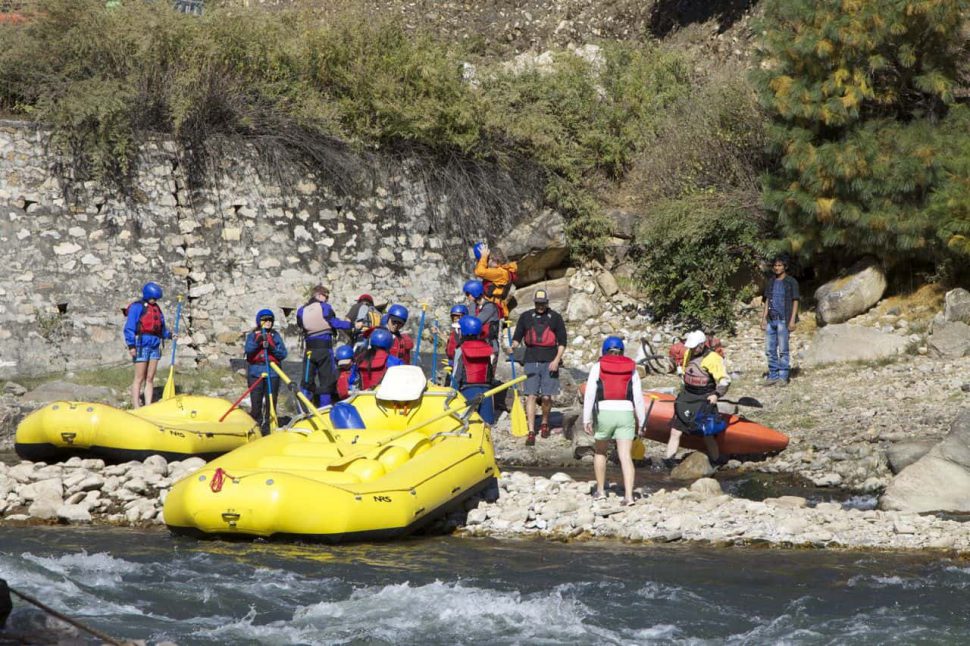
Tiger’s Nest
Our last day was spent hiking up to the Taktshang (Tiger’s Nest) monastery. This is a 3,000 foot climb up to a monastery that was built on a cliff around caves that the famous Guru Rinpoche used to meditate when he arrived in Bhutan from Tibet.
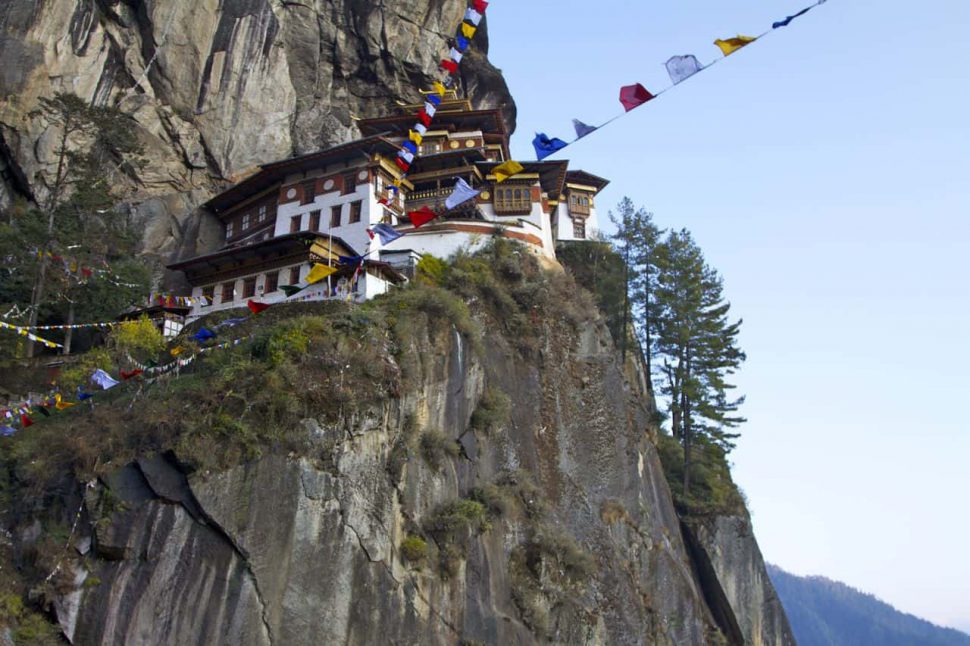
It is one of the most amazing places in the world and we were lucky to be there at the same time that the Je Khempo was visiting. We didn’t see him, but the whole place was alive with activity since the religious leader of Bhutan was visiting.
After an amazing hike to Taktshang we enjoyed some traditional Bhutanese dance and had a wonderful last night dinner in which we all shared our favorite moments of the trip.
Each day of our trip seemed to be better than the last. And every time I visit this amazing country, I’m left wondering how long will it be until I return.

